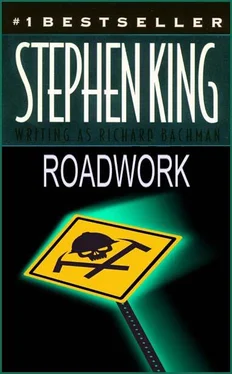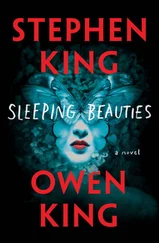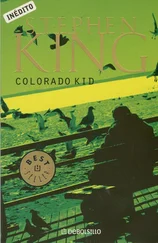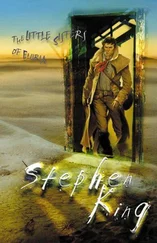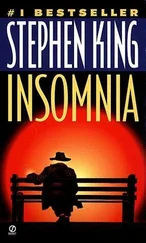Stephen King - Roadwork
Здесь есть возможность читать онлайн «Stephen King - Roadwork» весь текст электронной книги совершенно бесплатно (целиком полную версию без сокращений). В некоторых случаях можно слушать аудио, скачать через торрент в формате fb2 и присутствует краткое содержание. Год выпуска: 1981, Жанр: Ужасы и Мистика, на английском языке. Описание произведения, (предисловие) а так же отзывы посетителей доступны на портале библиотеки ЛибКат.
- Название:Roadwork
- Автор:
- Жанр:
- Год:1981
- ISBN:нет данных
- Рейтинг книги:4 / 5. Голосов: 1
-
Избранное:Добавить в избранное
- Отзывы:
-
Ваша оценка:
- 80
- 1
- 2
- 3
- 4
- 5
Roadwork: краткое содержание, описание и аннотация
Предлагаем к чтению аннотацию, описание, краткое содержание или предисловие (зависит от того, что написал сам автор книги «Roadwork»). Если вы не нашли необходимую информацию о книге — напишите в комментариях, мы постараемся отыскать её.
Roadwork — читать онлайн бесплатно полную книгу (весь текст) целиком
Ниже представлен текст книги, разбитый по страницам. Система сохранения места последней прочитанной страницы, позволяет с удобством читать онлайн бесплатно книгу «Roadwork», без необходимости каждый раз заново искать на чём Вы остановились. Поставьте закладку, и сможете в любой момент перейти на страницу, на которой закончили чтение.
Интервал:
Закладка:
Richard Bachman
Roadwork
What happens when one good-and-angry man fights back is murder-and then some…
PROLOGUE
I don’t know why. You don’t know why. Most likely God don’t know why, either. It’s just Government business, that’s all.
–Man-in-the-street interview concerning Viet Nam, circa 1967But Viet Nam was over and the country was getting on.
On this hot August afternoon in 1972, the WHLM Newsmobile was parked near Westgate at the end of the Route 784 expressway. There was a small crowd around a bunting-covered podium that had been hurriedly tossed together; the bunting was thin flesh on a skeleton of naked planks. Behind it, at the top of a grassy embankment, were the highway tollbooths. In front of it, open, marshy land stretched toward the suburban hem of the city’s outskirts.
A young reporter named Dave Albert was doing a series of man-on-the-street interviews while he and his co-workers waited for the mayor and the governor to arrive for the ground-breaking ceremony.
He held the microphone toward an elderly man wearing tinted spectacles.
“Well,” the elderly man said, looking tremulously into the camera, “I think it’s a great thing for the city. We’ve needed this a long time. It’s… a great thing for the city.” He swallowed, aware that his mind was broadcasting echos of itself, helpless to stop, hypnotized by the grinding, Cyclopean eye of posterity. “Great,” he added limply.
“Thank you, sir. Thank you very much.”
“Do you think they’ll use it? On the news tonight?”
Albert flashed a professional, meaningless smile. “Hard to tell, sir. There’s a good chance.”
His sound man pointed up to the tollgate turnaround, where the governor’s Chrysler Imperial had just pulled up, winking and gleaming like a chrome-inlaid eight ball in the summer sunshine. Albert nodded back, held up a single finger. He and the cameraman approached a guy in a white shirt with rolled-up sleeves. The guy was looking moodily at the podium.
“Would you mind stating your opinion of all this, Mr…?”
“Dawes. No, I don’t mind.” His voice was low, pleasant.
“Speed,” the cameraman murmured.
The man in the white shirt said, still pleasantly, “I think it’s a piece of shit.”
The cameraman grimaced. Albert nodded, looking at the man in the white shirt reproachfully, and then made cutting gestures with the first two fingers of his right hand.
The elderly gentleman was looking at this tableau with real horror. Above, up by the tollbooths, the governor was getting out of his Imperial. His green tie was resplendent in the sun.
The man in the white shirt said politely: “Will that be on the six or eleven o’clock news?”
“Ho-ho, fells, you’re a riot,” Albert said sourly, and walked away to catch the governor. The cameraman trailed after him. The man in the white shirt watched the governor as he came carefully down the grassy slope.
Albert met the man in the white shirt again seventeen months later, but since neither of them remembered that they had met before, it might as well have been the first time.
Part one
NOVEMBER
Late last night the rain was knocking on my window I moved across the darkened room and in the lampglow I thought I saw down in the street The spirit of the century Telling us that we’re all standing on the border.
–Al StewartNovember 20, 1973
He kept doing things without letting himself think about them. Safer that way. It was like having a circuit breaker in his head, and it thumped into place every time part of him tried to ask: But why are you doing this? Part of his mind would go dark. Hey Georgie, who turned out the lights? Whoops, I did. Something screwy in the wiring, I guess. Just a sec. Reset the switch. The lights go back on. But the thought is gone. Everything is fine. Let us continue, Freddy-where were we?
He was walking to the bus stop when he saw the sign that said:
It was snowing a little out of a gray sky. It was the first snow of the year and it landed on the pavement like white splotches of baking soda, then melted. He saw a little boy in a red knitted cap go by with his mouth open and his tongue out to catch a flake. It’s just going to melt, Freddy, he thought at the kid, but the kid went on anyway, with his head cocked back at the sky.
He stopped in front of Harvey’s Gun Shop, hesitating. There was a rack of late edition newspapers outside the door, and the headline said:
Below that, on the rack, was a smudged white sign that said:
It was warm inside. The shop was long but not very wide. There was only a single aisle. Inside the door on the left was a glass case filled with boxes of ammunition. He recognized the.22 cartridges immediately, because he’d had a.22 single-shot rifle as a boy in Connecticut. He had wanted that rifle for three years and when he finally got it he couldn’t think of anything to do with it. He shot at cans for a while, then shot a blue jay. The jay hadn’t been a clean kill. It sat in the snow surrounded by a pink blood stain, its beak slowly opening and closing. After that he had put the rifle up on hooks and it had stayed there for three years until he sold it to a kid up the street for nine dollars and a carton of funny books.
The other ammunition was less familiar. Thirty-thirty, thirty-ought-six, and some that looked like scale-model howitzer shells. What animals do you kill with those? he wondered. Tigers? Dinosaurs? Still it fascinated him, sitting there inside the glass case like penny candy in a stationery store.
The clerk or proprietor was talking to a fat man in green pants and a green fatigue shirt. The shirt had flap pockets. They were talking about a pistol that was lying on top of another glass case, dismembered. The fat man thumbed back the slide and they both peered into the oiled chamber. The fat man said something and the clerk or proprietor laughed.
“Autos always jam? You got that from your father, Mac. Admit it.”
“Harry, you’re full of bullshit up to your eyebrows.”
You’re full of it, Fred, he thought. Right up to your eyebrows. You know it, Fred?
Fred said he knew it.
On the right was a glass case that ran the length of the shop. It was full of rifles on pegs. He was able to pick out the double-barreled shotguns, but everything else was a mystery to him. Yet some people-the two at the far counter, for example, had mastered this world as easily as he had mastered general accounting in college.
He walked further into the store and looked into a case filled with pistols. He saw some air guns, a few.22’s, a.38 with a wood-grip handle,.45’s, and a gun he recognized as a.44 Magnum, the gun Dirty Harry had earned in that movie. He had heard Ron Stone and Vinnie Mason talking about that movie at the laundry, and Vinnie had said: They’d never let a cop carry a gun like that in the city. You can blow a hole in a man a mile away with one of those.
The fat man, Mac, and the clerk or proprietor, Harry (as in Dirty Harry), had the gun back together.
“You give me a call when you get that Menschler in,” Mac said.
“I will… but your prejudice against autos is irrational,” Harry said. (He decided Harry must be the proprietor-a clerk would never call a customer irrational.) “Have you got to have the Cobra next week?”
Читать дальшеИнтервал:
Закладка:
Похожие книги на «Roadwork»
Представляем Вашему вниманию похожие книги на «Roadwork» списком для выбора. Мы отобрали схожую по названию и смыслу литературу в надежде предоставить читателям больше вариантов отыскать новые, интересные, ещё непрочитанные произведения.
Обсуждение, отзывы о книге «Roadwork» и просто собственные мнения читателей. Оставьте ваши комментарии, напишите, что Вы думаете о произведении, его смысле или главных героях. Укажите что конкретно понравилось, а что нет, и почему Вы так считаете.
